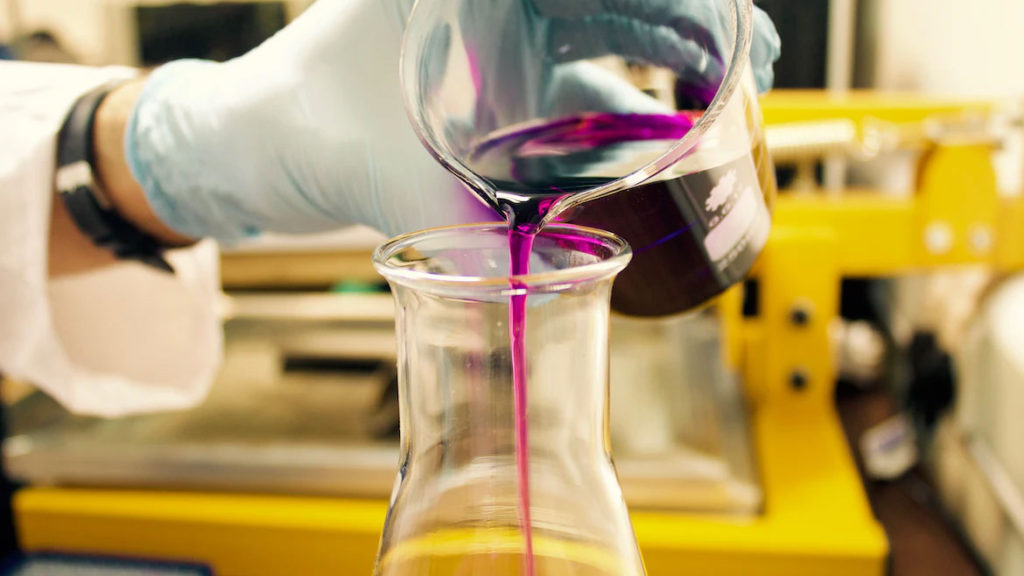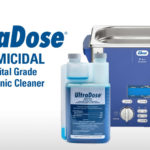This article is also available in Spanish.
PFAS, or “forever chemicals”, have come under large scrutiny by government agencies and officials around the world in recent years. As of 2023, many companies are having to prepare for and adhere to new bans and regulations on these chemicals that can take a serious effect on the business operations of Semiconductor, Medical Device, Automotive, Aviation, Aerospace, Manufacturing, and some Retail industries. Much of the population hearing of these bans have been facing some confusion when it comes to identifying what these chemicals are and why they’re being closely monitored in the first place. Today, our experts here at PAC have put together an all-inclusive guide to PFAS chemicals and what you can do to prepare for these bans at your own company.
What are PFAS Chemicals?
PFAS, or per and poly-fluoroalkyl substances, are a large and complex man-made group of synthetic chemicals. These chemicals have been in use in industrial and consumer products since their introduction in the late 1940s by DuPont. Some typical applications that utilize these chemicals include high-precision cleaning in the aerospace and medical device industries, the manufacturing of semiconductors, hydraulic fluids in the automotive industries, and many more.
Why are PFAS Chemicals a Problem?
The consistent use of these chemicals poses a long-term threat to the lives of humans, animals, and other living organisms. The main reason for this threat is that when in use, these chemicals can navigate into soil, water, and air where they will never break down. Their resistance to breaking down in the environment is where the more well-known term “forever chemicals” comes from.
The inability to break down leads these chemicals to end up in the bloodstreams of animals and humans. According to the CDC, this presence may be leading to harmful health effects. The National Institute of Environmental Health Services states that these chemicals are an issue of public health because of the widespread occurrence of PFAS in the blood of humans and animals, the high opportunity of exposure, the high number of available PFAS chemicals, and bioaccumulation. For these reasons, many states and international agencies have begun the ban on these chemicals.
Recent PFAS Bans & Market Withdrawals
Due to continuing research and findings about the potential dangers of PFAS chemicals for animals, humans, and the environment, government agencies on a state, federal, and international level have begun making bans and new regulations on the chemicals. The European Union(EU) has been making strides in the PFAS reduction movement over the past few years. The crackdown on PFAS development at the 3M plant in Belgium is often referred to as the first step in what eventually became 3M’s December 2022 announcement of their intention to completely remove PFAS chemicals from production by 2025.
Stateside many companies are also looking at future bans and tighter regulations on products containing PFAS chemicals. In 2021, Maine was one of the first states to make a monumental crackdown on the production of PFAS chemicals. The state brought into law that no new products containing PFAS chemicals are to be in production by 2030. The only exceptions to the rule include necessary health, safety, and function of society products with no non-PFAS replacements available.
States including New York, California, Pennsylvania, and Hawaii have introduced bans on the intentional use of PFAS chemicals in household and consumer-related products. California, Maine, and others have also made it a requirement for companies to report their intentional use of all PFAS chemicals in any products and applications as of 2023. As more bans and regulations come to light in the United States and Internationally, more products and applications are likely to face an impact in the coming decade.
How Can PFAS Affect My Manufacturing Process?
So, how can these bans and market withdrawals affect your business? For starters, PFAS chemicals are everywhere and a product that your company relies on likely contains a PFAS chemical. As states and countries globally begin to clamp down on PFAS chemicals, the more likely we are to see new bans across the board.
With more bans expected, the idea that business operations in aviation, aerospace, automotive, and manufacturing companies could be impacted becomes a greater threat. Those using products sold by 3M containing PFAS chemicals are already having to scramble for new products by 2025. To prevent a last-minute switch and create a smoother transition away from PFAS products, our experts suggest that companies get a head start in indicating which of their products contain these chemicals. Identifying which PFAS products you use will help your teams kickstart the research process of finding new, safer products.
At PAC, we take pride in helping our customers gain access to the products they need when they need them. Our teams are doing what we can to find products our vendors offer that can act as direct replacements for PFAS products or are an environmentally safe solution. As new bans, regulations, and market withdrawals come to fruition, our teams will do everything we can to keep our customers informed and ready to make any necessary product transitions. If your company is currently being affected by 3M’s announced withdrawal of products relating to vapor degreasing processes, check out some of our suggested replacements today.
Related Posts
-
3M™ Novec™ Chemical To Exit Market: Here’s The Replacement You Need
This article is also available in Spanish. On December 20th, 2022, 3M™ announced its intended exit from the per- and polyfluoroalkyl substance (PFAS) market, effectively taking away 58 3M™ products, including all Novec™ PFAS products…
-
Químico 3M ™ Novec™ saldrá del mercado: Aquí está el reemplazo que necesita
Artículo disponible en inglés. El 20 de diciembre de 2022, 3M™ anunció su intención de abandonar el mercado de las sustancias perfluoroalquiladas y polifluoroalquiladas (PFAS), retirando de forma efectiva 58 productos 3M™, incluidos todos los…
-
Germicidal Disinfectant Chemicals for Ultrasonic Cleaners
UltraDose® is a hospital grade disinfectant designed for ultrasonic cleaners. EPA Registered Formulation The UltraDose formulation is E.P.A registered for use in hospitals when disinfecting non-porous instruments, appliance surfaces, apparatus, fixtures, and equipment. Is UltraDose…
-
Dispensing: Recycle or Replace?
The most popular dispensing technique used in the manufacturing process is time and pressure dispensing (TPD) from a syringe barrel. This method became popular because if the low-cost, simple setup and lack of required maintenance.…
-
BenchPro™ stainless steel frame workbenches added to PAC product line
Production Automation Corporation is excited to announce that we are now offering BenchPro™ K, D, and A Series workbenches with stainless steel frames. High-quality, durable materials allow you to design and build just the right…
-
Where Can I Buy FDA Approved KN95 Masks?
When you buy face masks from PAC you'll have the benefit of masks shipped from USA warehouses, in-stock availability, and bulk pricing.









